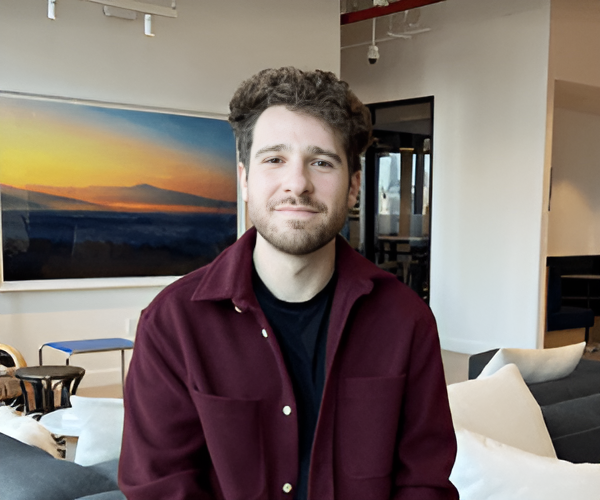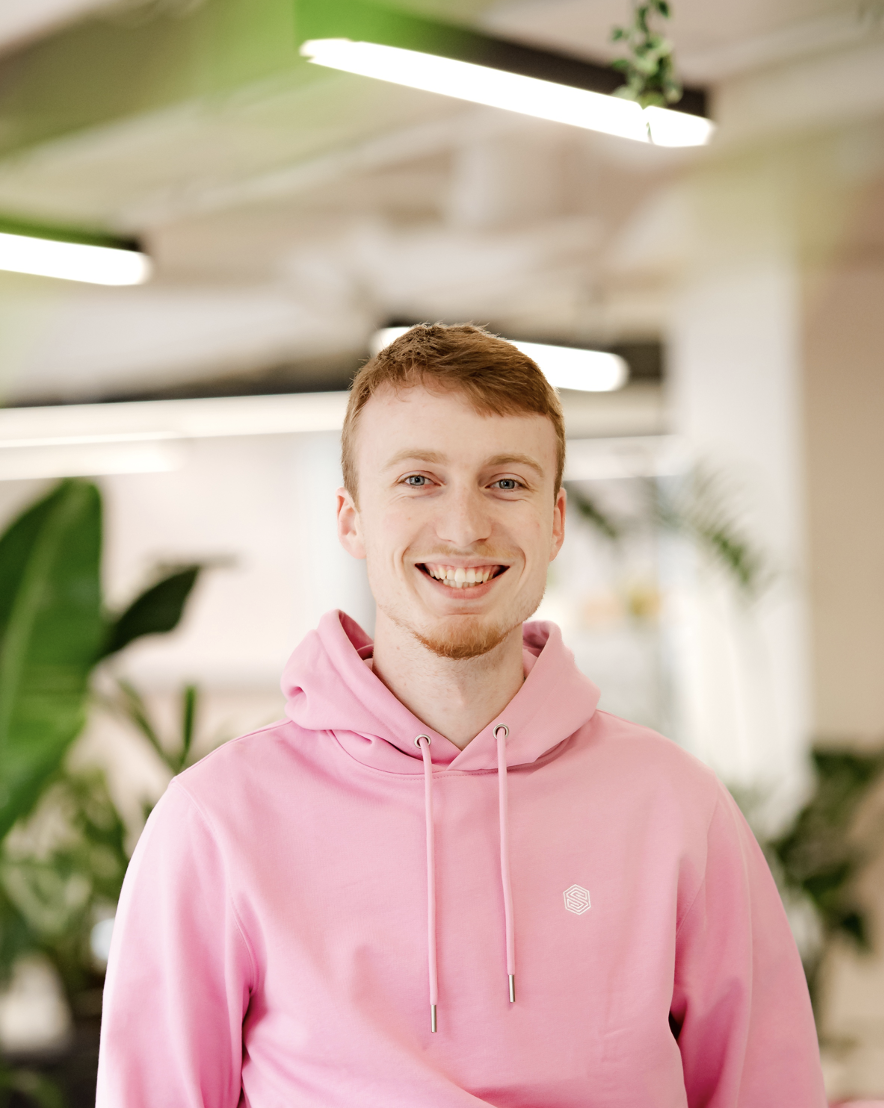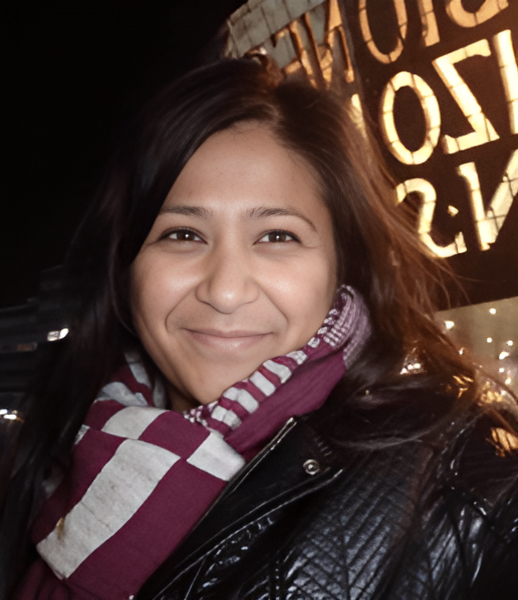Rilla is the leader in virtual ridealong software. The only company providing AI-powered ridealongs to outside sales reps, Rilla has pioneered a new category and is on its way to transforming the way that companies do outside sales.
“Outside” sales refers to in-person sales, as contrasted with inside sales which happen over the phone or virtual meeting software like Zoom. While inside sales teams have benefited from an explosion in sales analytics software like Gong and Chorus, outside sales teams have been forced to do in-person shadowing, or “ride-alongs”, in order to determine whether a sales person was effective in their pitch – until Rilla.
Crew Capital led Rilla’s seed financing round at the end of 2022 when they had just 4 employees; since then, the company has been one of the fastest growing startups in the US and is just getting started.
We recently had the pleasure of sitting down with Theo Carrel, a Software Engineer at Rilla, to explore the unique culture that sets Rilla apart, and learn what it’s like to work at one of the most ambitious and innovative startups in New York. Theo shared his career journey, reflected on his background in the dynamic software world, and offered a glimpse into the distinctive aspects of life as an engineer at Rilla.
Interview
After high school, what were the first steps that you took toward making software engineering an actual career?
I went off to college to study computer science. At that point in my life, I knew my career was probably going to be in software engineering. I wasn’t sure exactly what kind of software engineering, but during my time at college, I experimented with a bunch of different things. I was on the iOS team for my college newspaper and got really into iOS development. Then I tried out backend engineering, building websites.
After my sophomore year, I took an internship at a financial company in New Jersey. I was living in New York City at the time and grew up in New York City, so I was doing the reverse commute to New Jersey. At the internship, I quickly realized that software engineering and tech were not at the forefront of what they considered to be important. I was in a data analytics role, doing a lot of SQL queries making sure that they had consistent data. Also, I had to wear a button-down shirt every day, which was very different from all my other friends who were working at companies like Facebook and Google. It wasn’t exactly what I wanted, but I didn’t have a lot of experience at the time, so I took what I could.
What drew you to Rilla? Was there a specific aspect of the company that excited you the most?
The people. I was employee number five, so it was a very small company when I interviewed. Walking in and meeting everybody, the energy and their ambition were infectious, and that was exactly what I was looking for in an early-stage company. You need to have that energy and drive to be successful. At the time, besides Rilla, I had three other offers, so I was debating back and forth; it was a tough decision, I’m not gonna lie. The culture at Rilla is unique. We work really hard and super long hours, so it was definitely something to think about. But talking to Sebastian, the CEO, meeting the engineering team, and just everybody else, I knew for sure that this was the place I wanted to work.
What do you consider to be the most significant challenge in your day-to-day role, and how do you approach it?
The biggest challenge is also the biggest benefit, which is that there’s not a lot of guidelines when it comes to engineering, and there’s not always a lot of guidance when it comes to building new things. The work at Capital One was very structured; I was part of this new grad program where they kept a pretty close eye on us and made sure experienced people in the company were by our side. I was working with people who had been at Capital One for a long time; they were able to hold our hands along each step. We knew that if we were struggling, or even if we weren’t struggling, we had somebody to fall back on. At Rilla, we don’t have that. Because we’re moving so fast, there’s a lot to do; we’re constantly coming across problems and issues that we haven’t seen before, and for me, as an engineer, there’s not really someone to go and ask, like, “How did you handle this in the past?” It’s something that we need to figure out on our own constantly. Sometimes it’s challenging, but that’s one of the things that I love most about working at a startup: Coming across these new challenges that we have to figure out quickly.
How did you end up in the role at Rilla?
To speedrun it, after my prior internship, I took another the following summer at Capital One, where I enjoyed working and secured a return offer in New York once I graduated. I graduated college during COVID, so as opposed to my in-person internship, the full time role was remote. I felt separated from everybody and it was hard to collaborate and make friends with my coworkers, which makes a job, in my opinion, not super fun. When COVID hit and they canceled classes, I was living in upstate New York with a bunch of my friends. We had nothing to do and were just hanging out, but that got boring very quickly. Together with a buddy of mine, we started working on a project that eventually grew and we were able to pursue it full-time. We secured funding and worked on that app for about 9 months, but unfortunately, it did not work out. On the plus side, this is how I fell in love with startups: the speed, the unpredictability, the ownership mentality. So when the time came for me to look for a new job, I was really only looking at very early startups, and there came Rilla.
What makes the engineering team at Rilla stand out?
The drive and ambition that everybody has. I was just talking with Chris, our CTO, about this yesterday. When I first joined, there was a much smaller team, so we were not able to push out as much code. Now we have a Slack channel where we put the code to be reviewed and I’m being pinged constantly in that channel because our engineering team is pushing out such an insane amount daily. And we’re still very small. I think we’re at eight people now, but everybody works incredibly hard; we’re able to move quickly because we’re all collaborative, constantly helping each other out. It’s not a competitive environment, which I appreciate because sometimes in those environments, you’re afraid to go and ask for help because you don’t want to be seen as someone who doesn’t know anything. That’s not an issue here at Rilla. We’re constantly supporting each other, pushing each other forward, and it benefits the whole team. That’s one of the things I believe makes us stand out as an engineering team and as a company.
In what ways are you encouraged to experiment with new technologies as part of your job?
We put a big emphasis on customer ride-alongs; they allow us to get to know our customers better: their pain points, how they use the product, what they like about it, what they don’t like about it, and where we fall short on delivering the type of product that they need. That gives us a good idea on our next steps. Engineers are then able to come up with product ideas and new features. As an example, a couple of weeks ago, I was assigned a pretty vague task: to make searching across our application better. That meant I needed to understand the implications at a product level, but also understand from a bottom-up perspective on the technical side how we can make it happen. This involved introducing a whole new search solution to our product, Elasticsearch, a separate data store, which was not a small feat to integrate.
How would you describe the company’s culture in a few words?
The first word that I would say is people. Working this many hours and being at the office constantly, it wouldn’t be possible if we didn’t have amazing people surrounding us who help us keep moving forward. The energy is infectious, and that’s kind of what I feed off. I need smart, ambitious people surrounding me to make me feel the need to do the same.
The second, which is not one word, but I think it’s extremely important, is being unafraid of failure. It’s self-explanatory; we’re not afraid to fail while trying new things. It’s all about taking as many swings at bat, and even if you strike out nine out of 10 times, if you’re gonna hit that home run on that 10th time, it was all worth it. And something that we like to do is we have these things called F-Up Fridays; if you have a failure, you just let everybody know. We’ll give you a round of applause because that means you tried doing something you may have not been comfortable with, or you were doing something that you were not familiar with, and you gave it a shot – and that’s amazing.
The third word is speed. That goes hand in hand with not being afraid to fail; we’re always trying new things because we want to see what works. If you have an idea, you just try it out. There’s not a lot of bureaucracy; you don’t have to plan out a bunch of stuff. You give it a shot and will get feedback super quickly; in a matter of hours, as opposed to if you worked at a big tech company and you wanted to try something out, you might have to jump through a bunch of hoops to get that approved. This allows us to not only fail quickly, but succeed even quicker, and that’s important to us.
What qualities make someone well-suited for a startup environment?
Someone who wants to build and ship a new product fast, be close to the customers, understand their pain points, their needs, what they want, and be able to tackle that directly, put that into code, and ship super quickly. I think someone who would also be good at a startup is someone who likes ownership, and being able to take accountability for large features. That’s not always possible at the much bigger companies; they make sure that it’s usually split up and that you’re reporting to a lot of people before you make these big decisions. If you don’t like all that bureaucracy and you just want to get down to the code and build stuff, then you’d be great for a startup.
What career advice would you give to aspiring software engineers?
My biggest piece of advice is just to try out new things constantly. A lot of people will get an offer right out of college, and because nothing’s necessarily wrong with it, they’ll stay there for five, six, seven years. I think there are so many different aspects of engineering, especially computer or software engineering, and it’s tough to learn if you just stay in one place for most of your career. Not to say that you should be jumping around constantly, but maybe every few years, try something else. Whether that’s a new team within your company, working on a new product, or working on a new programming language, just try to constantly do new things so that not only can you learn new skills, but maybe you can discover other aspects of engineering that help you remain passionate about it.
Looking ahead, how do you envision Rilla evolving or growing in the near future?
We have extremely ambitious goals for the next year, and they’re simply not possible with the size of the team we have currently. I see us expanding the team tremendously, putting a big emphasis on making sure that our culture is not impacted by that. It just goes down to having a much bigger team of people who feel the same way that we do in regards to building products and how to go about scaling a company. I’m excited about that and the opportunity to be a big part of scaling the engineering team and being directly involved. And lastly, we have some big ARR targets that we are striving to hit this year, and while I won’t share them just yet, I can tell you that our team is all hands on deck trying to make it happen.
To learn more about Rilla, check out our investment thesis, their website, and open jobs.
Related Articles
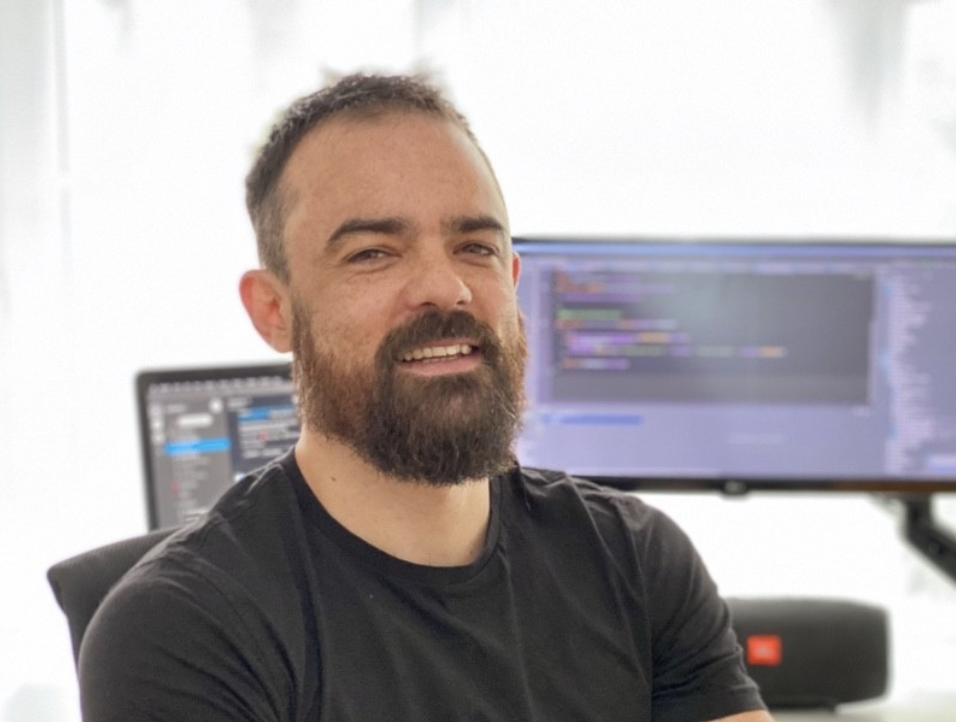
Inside Hook: A Day in the Life of Engineering Leader Nic Parry
We recently sat down with Nic Parry, a Senior Software Engineer at Hook, to explore what it's like working at…
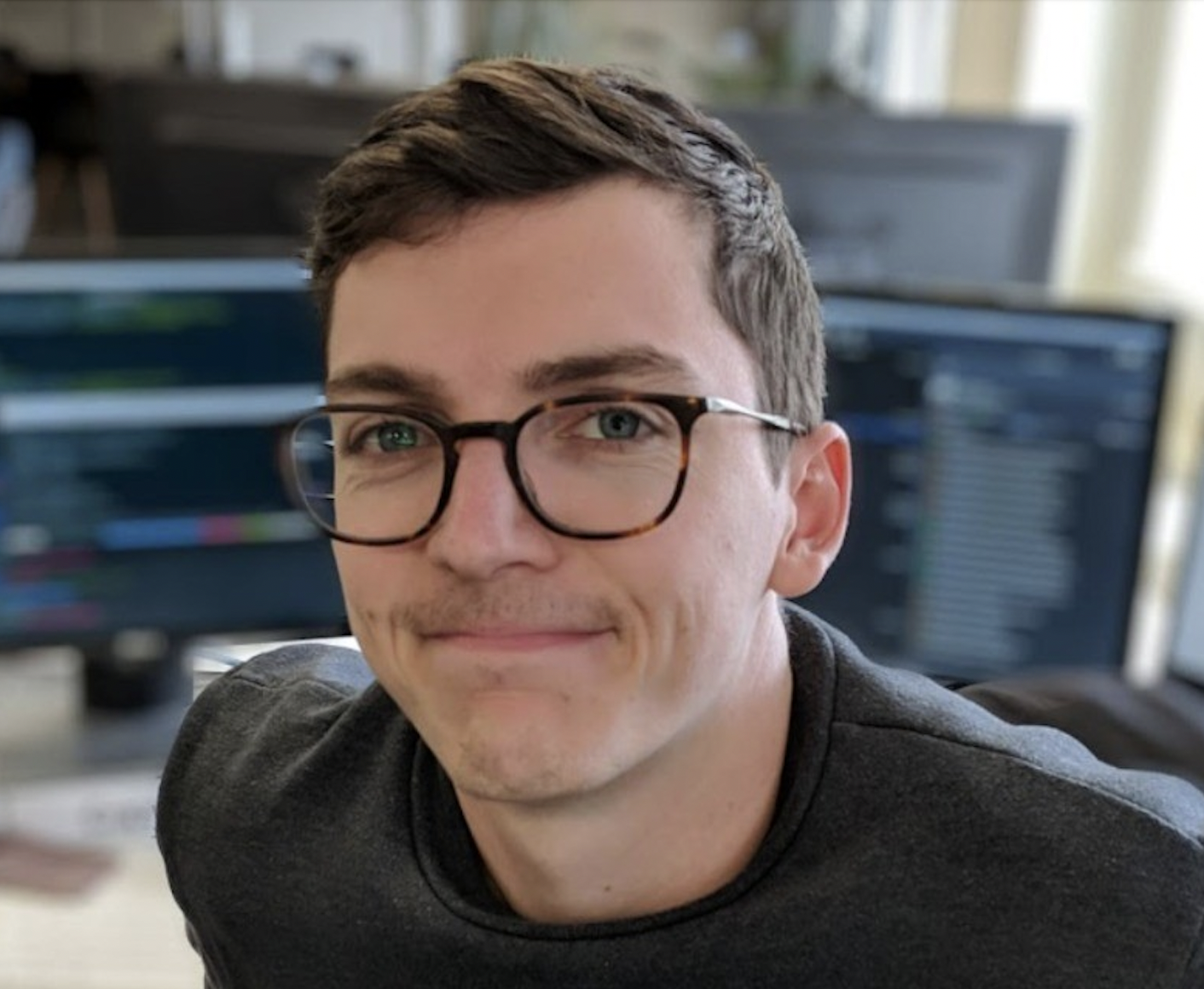
Inside MaintainX: A Day in the Life of Staff Engineer Philippe Tessier
We recently sat down with Philippe Tessier, Staff Engineer at MaintainX, to learn more about what it’s like working at…
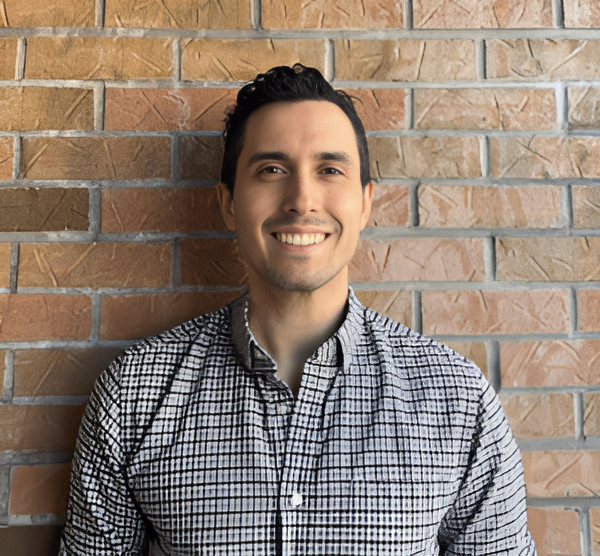
A Day in the Life at Aktos with Alvaro Atienza
Crew Capital recently sat down with Alvaro Atienza, Staff Site Reliability Engineer (SRE) at Aktos, to learn more about what…




